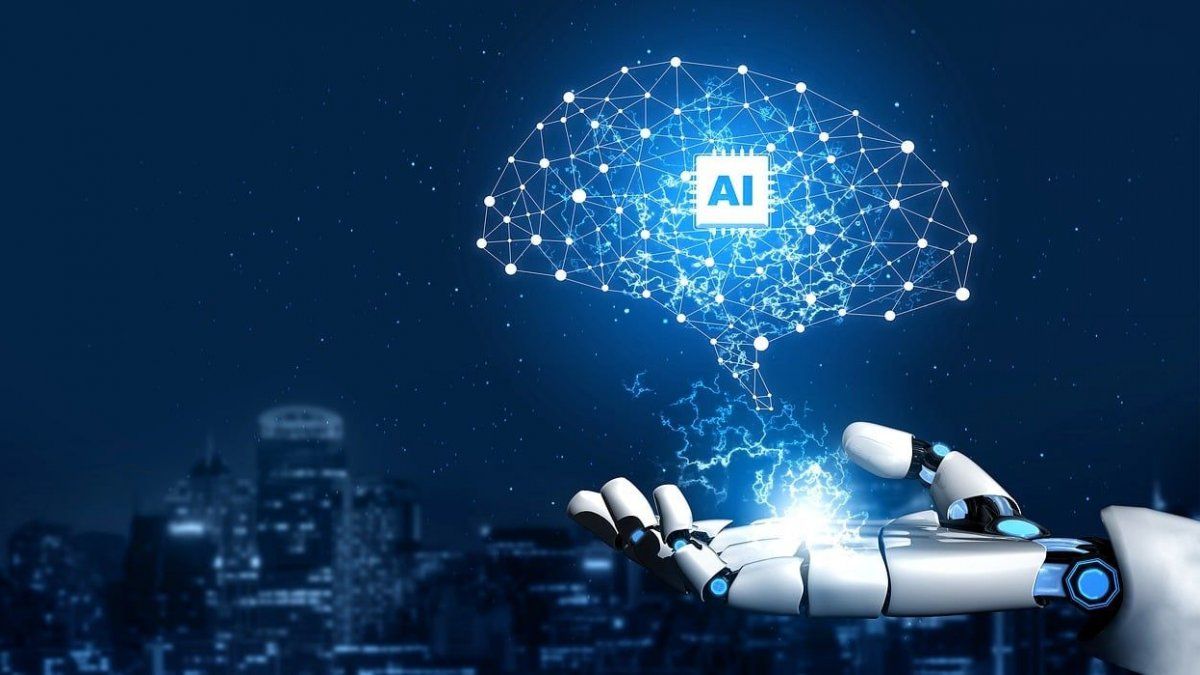The Artificial Intelligence (AI) has permeated all industries globally, achieving achievements that once seemed more science fiction than reality. Today, advanced technologies are used in a variety of applications, such as voice recognition, speech synthesis, machine translation and the development of robotics. These advances are transforming the way we live and work, but it often goes unnoticed.
In recent days, innovative AI models have been launched that promise to revolutionize various fields. For example, OpenAI introduced GPT-4o miniwhich stands out for its effectiveness and low cost, Democratising access to AIMicrosoft, for its part, has entered the mobile design space with its Designer app, offering creative and accessible tools through AI, to name a few.
- Weak AI: This AI specializes in specific tasks and does not learn beyond them. Examples of weak AI include image recognition, natural language processors, and image generators. Virtual assistants such as Siri, Google Assistant, and Alexa are forms of weak AI, capable of understanding and responding to voice commands, but not of making accurate medical diagnoses.
- Reactive machines: These AIs can only react to specific stimuli, without the ability to create or access future memories. Examples of reactive machines include spam filters and recommendation systems that suggest content or products based on user behavior.
- Limited memory AI: This type of AI can store information, learn from it, and use it to perform new tasks. They are useful for making predictions and are used in fields such as finance and weather forecasting. Common examples include chatbots and self-driving cars.
And as he explains well Alejandro DingiannaBI and Digital Analytics Manager at CAT Technologiesin dialogue with Ambitthe impact of these types of AI on everyday life”It is deep and multifaceted”. Although often imperceptibly, it has already brought about important changes: from spam filters that prevent inboxes from being flooded with unwanted emails to the personalized recommendations offered by Netflix.
“AI works quietly behind the scenes to improve the experiencerevolutionizing even sectors such as customer service, medicine and the automotive industry, offering increasingly precise, efficient and personalized solutions,” says Dingianna.
AI in the paid media industry
Nahuel Belloa specialist in Cybersecurity and Intelligence Solutions, explains to this medium that the payment media industry evolves hand in hand with technology. He indicates that in this sector AI is used to strengthen security, Detecting fraud much fasterand improving customer payment experiences instantly. “This allows for better decisions to be made by connecting intelligence, From processing millions of data in real time to validating customer identification with biometrics”, among other solutions.
According to him, the payment firm where he works is completely transforming the customer payment experience by integrating artificial intelligence into each stage of the customer journey, which ends with the introduction of facial biometrics to ensure security and convenience in every transaction.
“AI is already transforming our daily lives, and the payment industry is no exception,” Bello says. Some concrete examples include:
- Real-time fraud detection: AI analyzes billions of transactions to identify suspicious patterns and prevent fraud before it happens, protecting consumers and merchants.
- Biometric authentication: AI incorporates the use of fingerprints or facial recognition to verify the user’s identity, making transactions safer and simpler.
- Personalized payment experiences: AI analyzes consumer behavior to deliver personalized recommendations, relevant offers, and a smoother checkout experience.
Artificial intelligence and investments: what is the scope
Mariano FioritoCountry Head in Schrodersbelieves that AI has emerged as a transformative force in various aspects of daily life as well as in the investment arena.
Fiorito explains that in Schroders embrace AI to boost efficiency and strategic decision-making in investment and private asset management. The expert believes that generative AI represents “a fifth industrial revolutiondifferent from all previous ones.” And the fact is that past industrial revolutions facilitated physical work with advances such as the steam engine, trains, automobiles, telephones, light bulbs, computers and the Internet.
However, Fiorito argues that current innovation, for the first time, helps with cognitive work. The Schroders expert asserts that the AI revolution is creating many opportunities in private markets“especially in emerging companies in sectors such as energy and biotechnology.”
He also argues that AI will also have a long-term impact in industries such as real estate and infrastructure, increasing demand for offices in technology centers and revitalizing demand for data centers. Furthermore, “the high energy consumption of AI presents opportunities for investments in renewable energy,” concludes Fiorito.
Biases: Can AI exacerbate existing social inequalities?
Dingianna of CAT Technologies responds that understanding multiple AIs and their impacts is essential in the modern world. “As this technology continues to advance, an ethical and responsible approach must be maintained to maximize its benefits and minimize its risks.” The expert assures that “Recognizing biases and actively working to reduce their impact will ensure that AI contributes positively to society as a whole”.
For Schroders’ Fiorito, AI has the potential to transform society in a positive way and very much in line with what Dingianna indicates that “With the right approach, AI can be a powerful tool to reduce inequalities and create more equitable opportunities.”.
However, she points out that to ensure that AI does not exacerbate social inequalities, it is crucial to adopt an inclusive and equitable approach. This includes investing in workforce training to adapt to new AI-driven labor market demands.
artificial intelligence
“AI technologies must be accessible to everyone, including small businesses and developing communities, so that they can benefit from these innovations.”
freepik.es
A key point: the democratization of technology
“AI technologies must be accessible to everyone, including small businesses and developing communities, so that they can benefit from these innovations,” he concludes.
FinallyVictoria MartinezAI + Analytics in Red Hat Latambelieves that it is a fact that AI “It can exacerbate social inequalities if adequate controls are not implemented for its responsible use.”. And, as she mentions, historically AI has been developed predominantly by men, which has led to biases in many algorithms.
Martinez says Catherine D’Ignazio and Lauren Klein’s book “Data Feminism” explores how these biases can reinforce inequalities. “It examines the intersection between data science and feminist theory, questioning traditional binaries and hierarchies that foster oppression.”
Therefore, for the developer, it is essential to work towards a balance, Promoting equitable access to information and servicesand ensuring that data and algorithms are neutral and inclusive. “Fortunately, many people are devoting significant efforts to this movement, although the great work they do is often not visible,” laments Martínez.
Source: Ambito
I am a 24-year-old writer and journalist who has been working in the news industry for the past two years. I write primarily about market news, so if you’re looking for insights into what’s going on in the stock market or economic indicators, you’ve come to the right place. I also dabble in writing articles on lifestyle trends and pop culture news.




